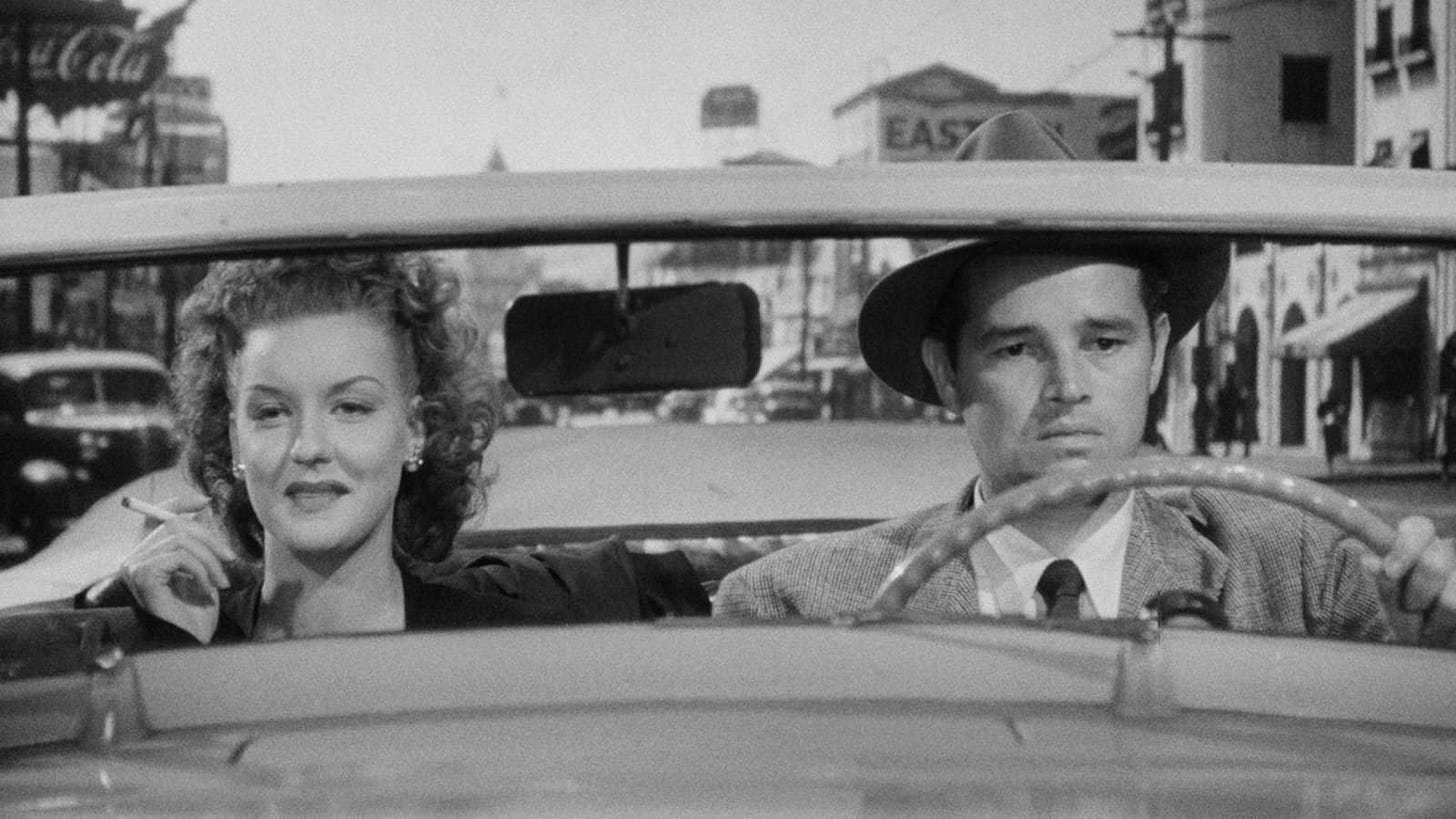If you’ve never seen a film noir, Detour may be a very dark but impactful introduction to the genre. It's a fascinating motion picture, directed by the Austrian filmmaker Edgar G. Ulmer. Approximately 10 years before Detour, he directed a stylish, dark psychological horror film, The Black Cat (1934), with Boris Karloff (aka Frankenstein) and Béla Lugosi (aka Dracula). Detour was an independent picture; however, the low budget benefits the story. The film captures a deliberately messy and grimy aesthetic that parallels the main character's inner turmoil.
The story centers on an ordinary American worker, Al Roberts (Tom Neal), a struggling and unaccomplished piano player. He has a girlfriend but feels ashamed of being unable to provide for her. This shame breeds self-doubt, leading him to accept his dismal situation without wanting to change it. Al appears destined to remain trapped in this unfulfilled and miserable state.
In contrast, his girlfriend Sue (Claudia Drake) is a determined go-getter. They both worked at the same nightclub, where she was a singer. One day, the girl decides to take charge of her life and pursue fame in Hollywood. Al lacks that same initiative to change his circumstances. However, driven by jealousy and loneliness, he decides to go after her so that they can get married.
Al’s journey to Hollywood becomes increasingly unpredictable, both literally and metaphorically. He manages to hitch a ride with a bookie named Charles (Edmund MacDonald) in Arizona, but a series of unfortunate events leads Al to witness Charles's accidental death. The character quickly figures that there is no possible way out of this situation but to hide the body in the trunk and run away. This sets Al on a path as a reluctant fugitive, justifying increasingly morally ambiguous decisions. He then encounters a blunt and ruthless femme fatale, Vera (Ann Savage), who manipulates him further into morally gray territory.
Detour is heavily character-driven and unfolds through Al's voiceover narration. As the story progresses, he reflects on his experiences and how they shape his current situation. He seems more like an observer than a participant in his life, allowing grim and scary events to occur without taking responsibility. Whenever faced with challenges, he detaches from reality, hoping to gloss over the consequences. His fear of confronting the truth leads him to a desire to escape into a new identity, avoiding the complexities of the real world. Yet, complications arise no matter how much he tries to avoid them.
Vera, the last woman Al would want on this journey, is brutally honest and unafraid to confront her flaws. While Al struggles with moral ambiguity and seeks justification for his poor choices, Vera embraces a more pragmatic view of her existence. She is truthful about who she is and can’t stand Al half-assing being a good and bad guy all at once. Many consider Vera one of the best femme fatales in cinema history, not because she conforms to the stereotype, but due to her ruthless authenticity.
Detour has a haunting effect and resonates with anyone trapped in their sorrows or the world's injustices. The ending may offer some satisfaction, but it also feels indifferent. Whether justice is served or not, it is far better to make a clear choice than to stumble from corner to corner of moral extremes.






